Get ready to face the cut-throat world of business-Orcs, a maelstrom of competition, and wheel and deal to be the best: Orconomics, "the" boardgame to recreate the chaotic economic world of modern Orcs on the gaming table, will be soon in stores. Backstabbing, ripping off opponents, taking away their industries - all is legit, if you get to the top of the Orc jet-set. Build up your companies with your strong, green hands, and bargain to the bitter end with your rivals.
In Orconomics, two to five players compete against each other to establish companies in 10 different Industries - Tourism, Livestock, Communications, Innovations, Food Processing, Transportation, Totemology, Banking, Smuggling, and Weapon crafting. They can create startups and develop them to become proper corporations or get a presence in an industry sector by winning auctions. Each sector generates income or losses, and grants players abilities that can be used during the game. To win, a player needs to be the first to found 10 companies on the game board - or less if they successfully fulfill some business quests.
The game board is composed of a Central Section and 10 Industry Sectors, assembled randomly for each new game. The sectors have different values and affect each other differently from game to game, providing great replayability. The central section is the bank, where the base currency – the Skulls – are placed. Each player begins the game with a starting capital.
Money is important but, just as in real life, players will not always have all the money they need. Greedy competitors will force them to bid and spend a lot of money on auctions. Purchasing new Industry Cards costs money too, and if several of their companies are in crisis or loss sectors, taking a loan might be the only option. But be careful - for each Loan a player has, they must pay interest of 1 Silver Skull to the Bank when they start their turn.
At the start of the game, all players roll the Forecast Dice and the one with the highest total gets the Oracle token and the Forecast dice. The Oracle is the active player - opening the turn, announcing each stage, and making sure all players observe the required sequence of actions. The Oracle token and the dice will be passed along clockwise, at the end of each turn.
The Turn Sequence starts with the Oracle paying interest on their Loans, and then rolling the Forecast dice to determine the Active Industry. Each turn is divided in three stages. In the first stage, Startups close to the Active Industry are promoted, and Companies in that Industry and in each of the two adjacent ones generates a Profit or Loss for their owners. The second stage is the Auction - if the active Industry is not full, an auction is held to create one new Company there.
The third stage, Development, is the most important one, as the Oracle plays their Industry cards. Industry cards are used to create or promote Startups, or to activate Industry Abilities (they can also be spent instead of gold, during Auctions).
Placing the companies and using cards, players can gain special advantages like stealing money from opponents with Banking and Weapon crafting, boosting startups with Innovation, bending loan rules with Tourism and Livestock. Presence in an Industry is important, but not essential to using its abilities: if a player has a company in a sector, only one card is needed to activate the ability. If not, two cards are needed.
There are different paths to victory. Most of the points will be gained by placing companies on the game board, one victory point for each of them. Besides fierce fights in the auctions to place new companies, there are other ways to grow your “orconomic” empire. Establishing some start-ups earlier in the game will cost only one industry card each, and in a few turns, they can become full scale companies – if your opponents don’t drive them out of business!
Players can also get precious points by completing quests of Greed, Rage or Dare. At the beginning of the game, three Quest Cards are revealed, and when a player completes the challenge of a Quest, they gain 1 Victory Point. When a completed Quest card has been claimed, another one is drawn and revealed to take its place. Pay attention to the available quests – each of them completed is one more step towards victory – reducing the number of companies needed to place to win.
* This article was originally published by Game Trade Magazine, issue 269 (July 2022).

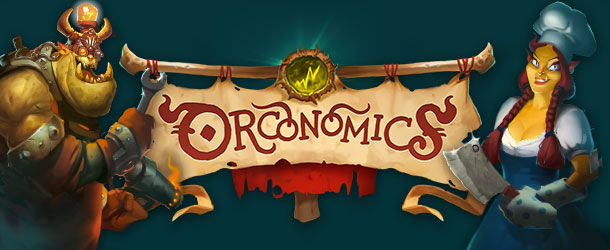
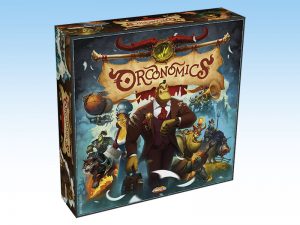
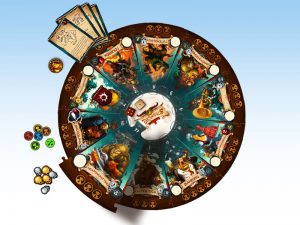
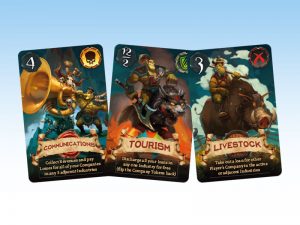
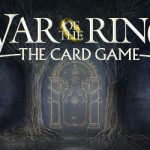

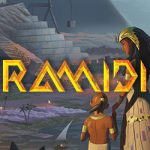





Follow Us on